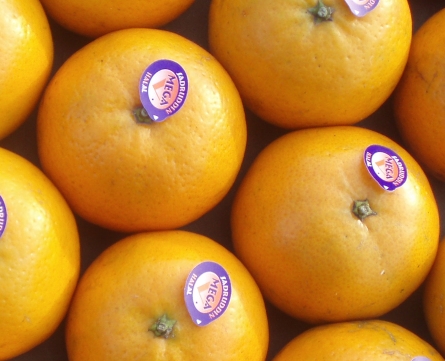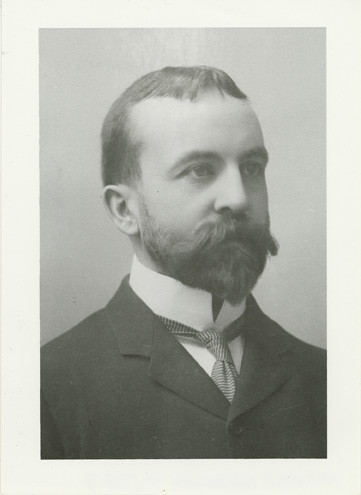 |
| Montana cowboys, c1910 |
These are from Nancy Mann Waddell
Woodrow’s The New Missioner,
about domestic affairs in a Colorado mining camp, Adeline Knapp’s The
Well in the Desert, about a fugitive who
comes to the aid of a widow, and Frederick Niven’s The Lost Cabin
Mine, about a tenderfoot’s friendship with
a robber. Once again, I struck out on a few. If anyone has a
definition for “Indian fire,” “cinch game,” “stock lantern,” or “your name is
Dennis,” leave a comment below.
Alcantara =
a Spanish breed of horses. “‘I raised him
myself,’ he went on, ‘and he’s standard bred, too, Daystar, out’n an Alcantara
mare.” Adeline Knapp, The Well in the Desert.
arrowweed =
an evergreen shrub native to arid regions
of the Southwest and Northern Mexico, where it often forms impenetrable thickets.
“Lacking boards, or the means to manufacture them, he wove his table-top of
arrow-weed and tough grasses from the cañon.” Adeline Knapp, The Well in the
Desert.
barranca =
a deep ravine or gorge. “They were
traveling along the edge of a deep barranca that yawned in the desert.” Adeline
Knapp, The Well in the Desert.
 |
| Barrel cactus, c1904 |
bisnaga = a barrel-shaped cactus with large spines and small
flowers, native to the Southwest and northern Mexico. “Gard explained the
nature of the bisnaga. If he had cut off the top he would probably have found a
quart or two of water.” Adeline Knapp, The Well in the Desert.
bite it off =
to restrain oneself, stop talking. “‘Got
it staked and located, too, I suppose,’ the lawyer said, with a sneer. ‘Bite it
off, Broome: what are you driving at?’” Adeline Knapp, The Well in the
Desert.
black willow =
a western variety of salix nigra,
the tallest willow found in North America. “The mesquite grew here, too; with
manzanita and scrub oak, arrow weed, and black willow.” Adeline Knapp, The
Well in the Desert.
.jpg/471px-Salix-nigra(01).jpg) |
| Salix nigra, 1913 |
bring to book =
to reprimand or require a person to give
an account of themselves. “Not a man he had brought to book moved. They sat
like men dazed, until the door had closed upon Gard.” Adeline Knapp, The
Well in the Desert.
bucking strap =
a device worn by a horse to prevent it
from lifting its hind-quarters to either kick or buck. “‘I can’t think what got
the fellow, or me either,’ he added, with a look of chagrin. ‘I never thought I
needed a bucking-strap; but it seems as if I did.’” Adeline Knapp, The Well
in the Desert.
choker = a clerical collar. “We could go to a man in a black
coat an’ a white choker, an’ perhaps, a good many of us found out that was all
there was to his spirituality.” Nancy Mann Waddell Woodrow, The New Missioner.
continental cuss =
something worthless. “As things stand I don’t think
he’d care, to use the language of the country, a continental cuss.” Frederick
Niven, The Lost Cabin Mine.
crucifixion thorn =
an intricately branched shrub with thick,
rigid, sharp branches and no leaves. “A great spike of the long, tough
crucifixion-thorn had somehow become imbedded in the flesh, and the whole
surface of the shoulder was swollen and inflamed.” Adeline Knapp, The Well
in the Desert.
 |
| Faille |
faille = a slightly
ribbed, woven fabric of silk or cotton. “I’ve had things ’most as fine as
Lutie’s. Satins, brocades, failles, grosgrains, taffetas, all kinds, anything I
wanted.” Nancy Mann Waddell Woodrow, The New Missioner.
float = gold in the form of flakes and dust washed down from
the hills; the gold obtained by placer mining. “The piece of float was freshly
severed and the flecks of yellow showed plainly in its split surface.” Adeline
Knapp, The Well in the Desert.
glim = a candle, lantern. “‘I’ll have to douse the glim,’
he explained, ‘since I’ll be out around town, and someone might wonder who’s
here.’” Adeline Knapp, The Well in the Desert.
gosh (all) hemlock =
a mild oath. “Gosh-hemlock! What funny
things you see when you ain’t got a gun!” Adeline Knapp, The Well in the
Desert.
 |
| Grosgrain ribbon |
grosgrain =
a closely woven silk fabric with narrow
horizontal ribs. “I’ve had things ’most as fine as Lutie’s. Satins, brocades,
failles, grosgrains, taffetas, all kinds, anything I wanted.” Nancy Mann
Waddell Woodrow, The New Missioner.
hair mattress =
a beard. “Have you seen that there feller
up ’t the casa? Him with the hair mattress on his face?” Adeline Knapp, The
Well in the Desert.
headpiece =
brain, mind. “‘I suppose you know,
anyway,’ the latter finally said, with a very good assumption of contempt, ‘Anybody
with a headpiece might, whether he’s a lawyer or not.” Adeline Knapp, The
Well in the Desert.
niggerhead cactus =
racially derogatory term for a cactus
native to the Mojave and Sonoran deserts, often growing in clusters, with
woolly fruit; now called “cotton top cactus.” “‘Why didn’t you tap the
nigger-head there by the barranca?’ his companion asked. ‘What—the big cactus
like a green punkin?’” Adeline Knapp, The Well in the Desert.
on the buscar
= looking for (Spanish).
“You don’t catch me taking on girls to look after. I’m on the buscar
for a boy.” Adeline Knapp, The Well in the Desert.
pegged out =
dead, exhausted. “‘I’m pegged out,’ he
said, wearily. ‘I’ll just sit here by the fire.” Adeline Knapp, The Well in
the Desert.
 |
| Pomelos |
pluffy = puffy and fat. “A man with a rolling gait, heavy
brows, and red, pluffy hands, a big, unwieldy man in a dark, dusty suit, came
in and sat down at my table.” Frederick Niven, The Lost Cabin Mine.
pomelo =
grapefruit (Spanish). “She could think of
no further retort to his pretty speech, and busied herself with showing him how
to eat the grape-fruit, wondering, vaguely, where he could have been, in the
desert, not to have encountered pomelos.” Adeline Knapp, The
Well in the Desert.
 |
| A. MacMechan, 1897 |
“Porter of Bagdad, The” = title of a whimsical
story by Canadian author Archibald McKellar MacMechan (1862-1933). “Mr.
Nitschkan, with something of the sensation of the Porter of Bagdad when he
awoke to find himself in the palace of the Princess of China, now completely
threw off the surly suspicion of the early evening.” Nancy Mann Waddell
Woodrow, The New Missioner.
pot = to shoot. “I’d pot any man tried that on me.” Adeline
Knapp, The Well in the Desert.
prog = to poke, prod. “Donoghue pulled out a clasp-knife
and sat progging in the sand with it.” Frederick Niven, The Lost Cabin Mine.
pully-haul =
to pull or haul with all one’s strength.
“The cowboys started out over the sand, pell mell, ‘pully haul,’ in a medley of
shrieks and oaths and thunderous bellowings.” Adeline Knapp, The Well in the
Desert.
rat house =
of unsound mind. “I’m always scared to ask
’em what the rudiments o’ that game is for they’re always kind o’ rat-house.” Frederick
Niven, The Lost Cabin Mine.
red = a cent. “I hadn’t a red after I’d settled up Ed’s
debts an’ small matters.” Adeline Knapp, The Well in the Desert.
rid up = to clear a
table of food and dishes. “She went on ‘ridding up’ the counter.” Adeline
Knapp, The Well in the Desert.
salt rising bread =
a dense white bread widely made by early settlers in the Appalachian
Mountains in a process that involves no yeast. “I jus’ brought a loaf of
salt-risin’ bread, Missioner, I baked fresh this afternoon, an’ some
lemon-jelly cake.” Nancy Mann Waddell Woodrow, The New Missioner.
score = a sum owed by a customer. “He was still muttering
gloomily when he went up to the desk to pay his score.” Adeline Knapp, The
Well in the Desert.
shake of a horn =
quickly. “He’ll be ready in the shake of a
horn.” Adeline Knapp, The Well in the Desert.
slip one’s wind =
to die or cause to die. “What assurance
could I have that once you had the sketch in your hands you wouldn’t slip my
wind?” Frederick Niven, The Lost Cabin Mine.
stand off =
to evade a question or a creditor. “She
looked at him blankly, her hard face set. ‘You don’t need stand me off,’ he
cried.” Adeline Knapp, The Well in the Desert.
“Tune the Old Cow Died On, The” = a
popular humorous song, copyrighted 1880, probably dating from earlier. “Sandy
Larch was squatted on the sand, against the wall of his shack, lacing a new
leather into the cincha-ring of his saddle, and snging The Tune The Old Cow
Died On.” Adeline Knapp, The Well in the Desert. Listen here.
tunk = all-purpose euphemism for “hell, “Devil,” etc. “How
in tunk did he ever git where he is now?” Adeline Knapp, The Well in the
Desert.
Venusberg =
a mountain in central Germany, containing
caves that, according to medieval legend, housed the palace of the goddess
Venus. “She craved the musky, heavy-headed roses grown in the very heart of the
Venusberg.” Nancy Mann Waddell Woodrow, The New Missioner.
wicket window =
a small window or opening, often fitted
with glass or a grating. “The cook who had come from the rear of the room,
having seen the business through the wicket widow from his pantry, I suppose,
cried out.” Frederick Niven, The Lost Cabin Mine.
Wikimedia Commons
Coming up: George Montgomery, Gun Duel in Durango (1957)
These are some odd ones. "Tunk" for Hell, never heard of it or most of the others. Thanks for revealing them.
ReplyDeleteOscar, I sometimes wonder if these really odd euphemisms are made up by the author, especially when they show up in only one book out of a hundred.
DeleteHere's a couple of more:
ReplyDeleterawhide: a man old in the ways of the West..was also said to be "bone-seasoned" or "alkalied."
Winchester quarantine: a barrier of force of arms during the struggle for range rights or other controversies of the frontier
sidewinder: humans of little principle
The essential book on this subject is "Cowboy Lingo," written by Ramon Adams in 1936. The 2000 edition has a forward by Elmer Kelton.
Absolutely right. Adams is the man to go to. His book on chuck wagon lingo is also essential.
DeleteI've heard of the Alcantara horses. Not sure where, though.
ReplyDeleteThe name is believed to come from Arabic al qantara, meaning "the bridge."
Delete